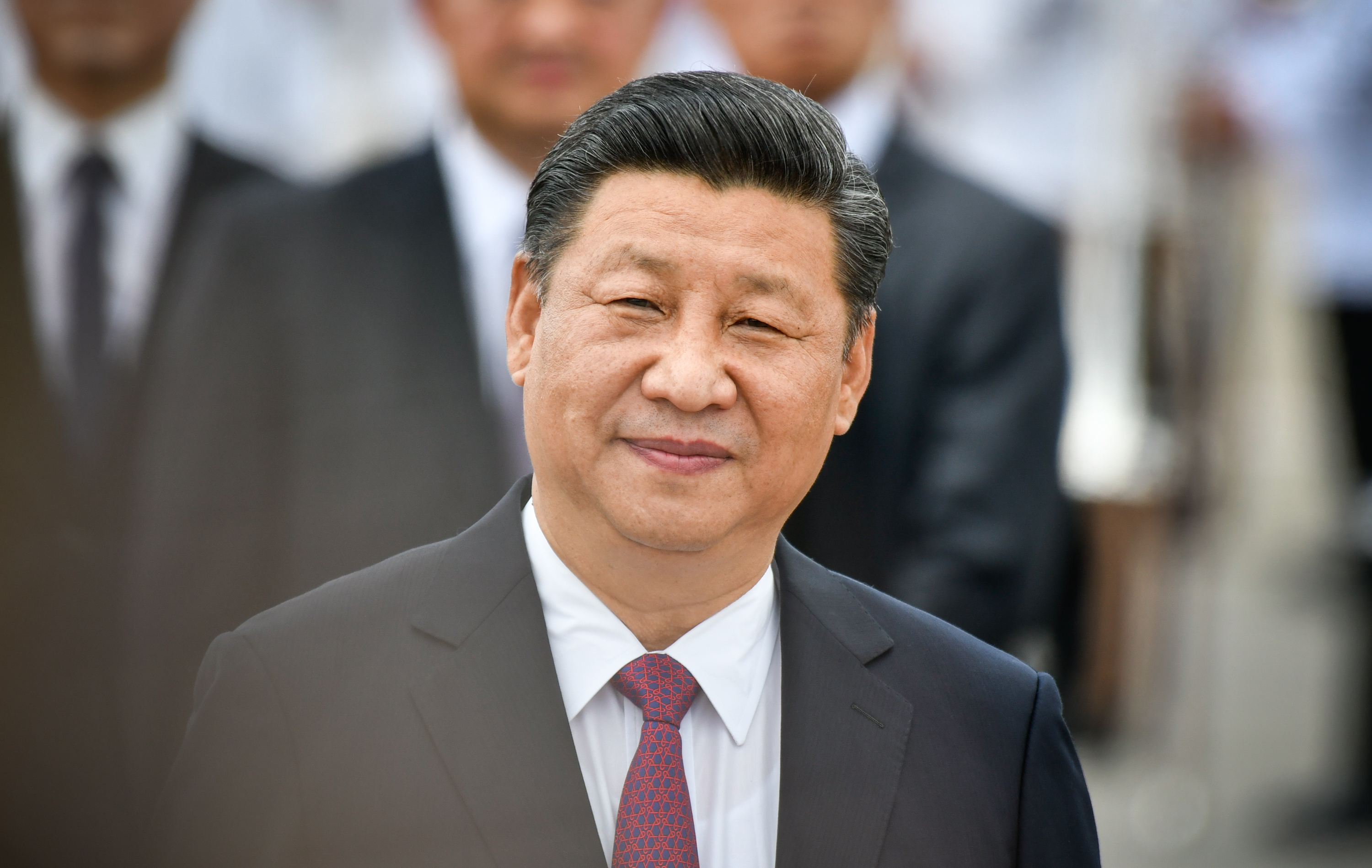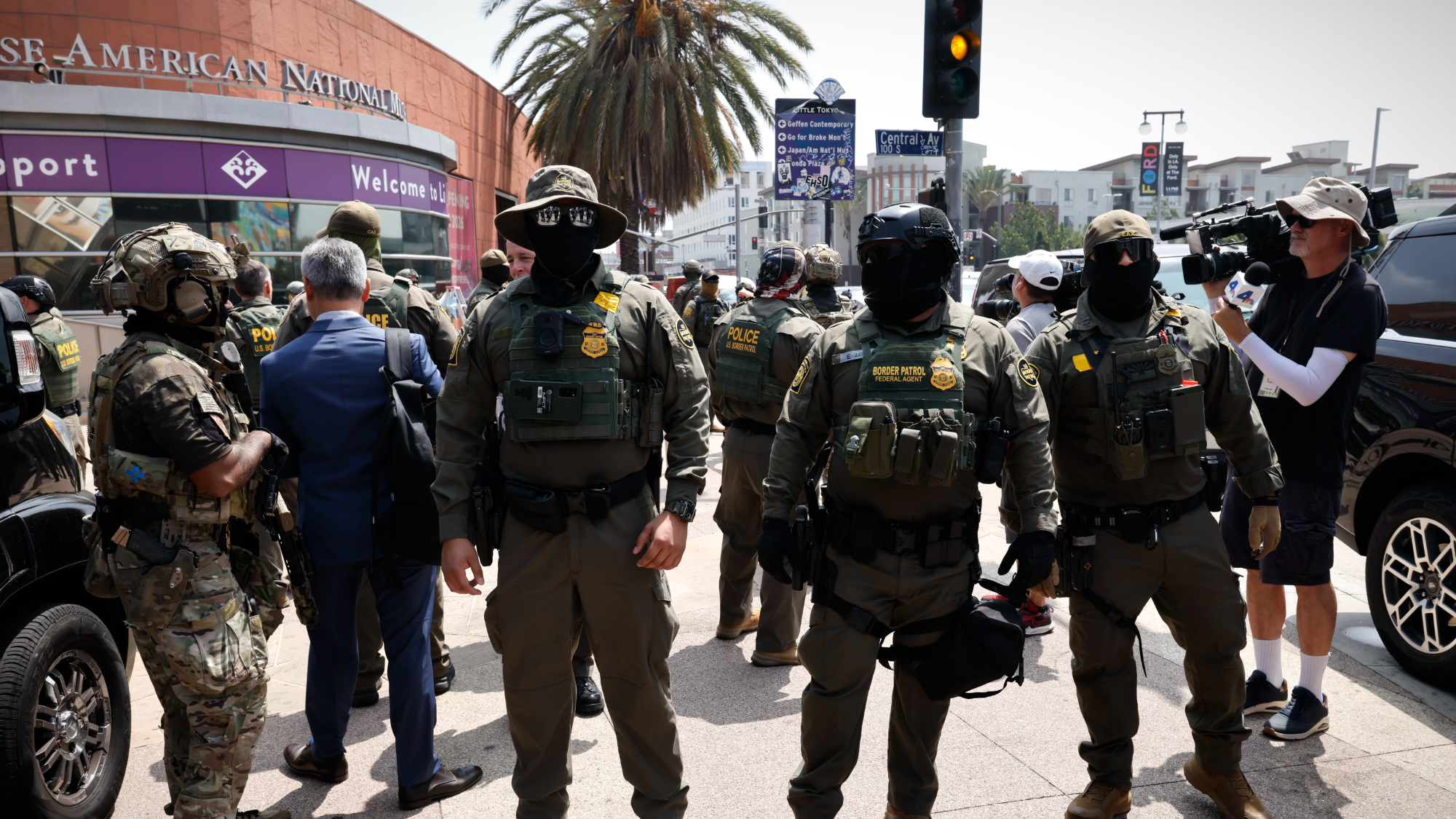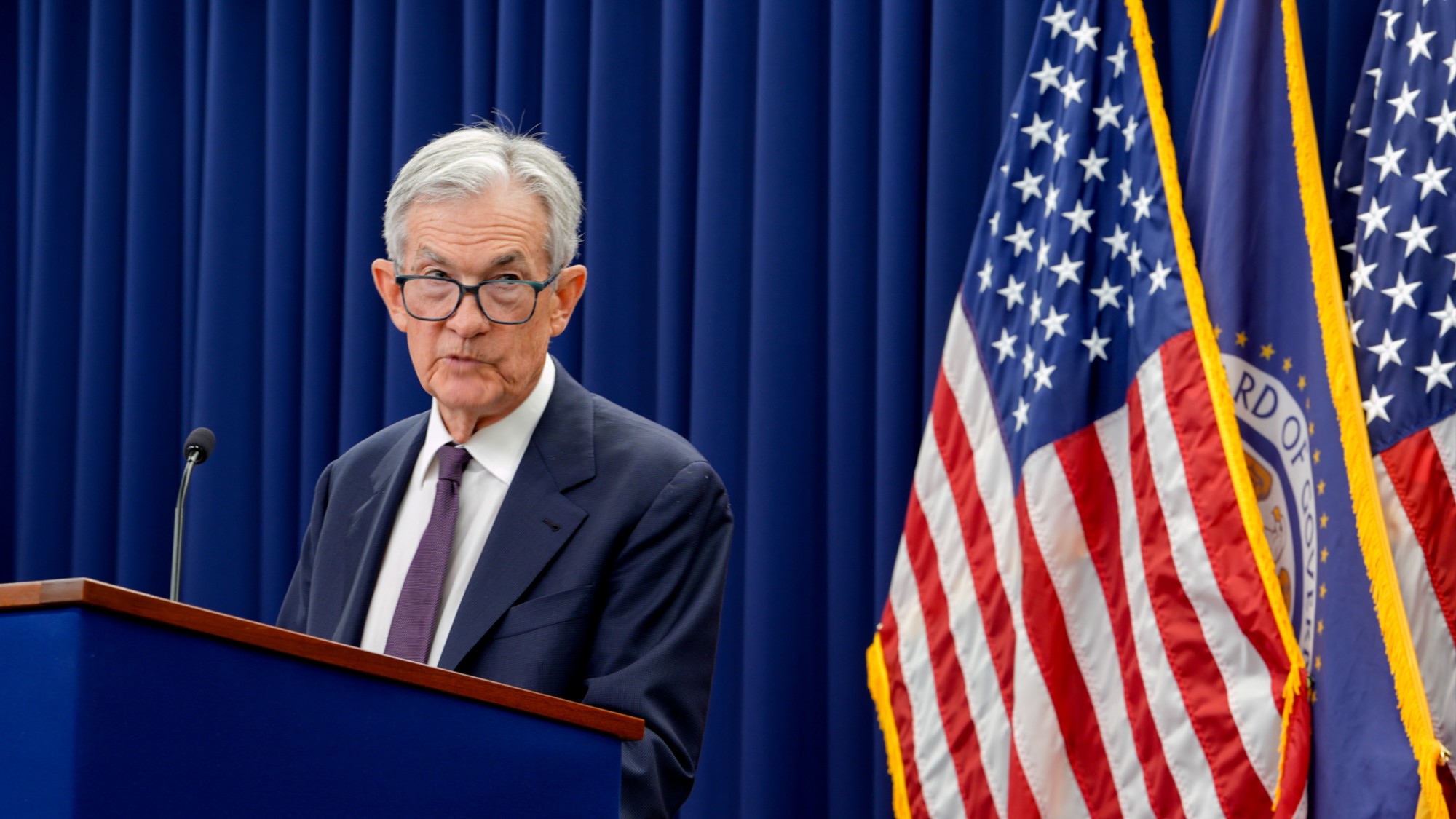Trump talks North Korea with leaders of China, Japan


A free daily email with the biggest news stories of the day – and the best features from TheWeek.com
You are now subscribed
Your newsletter sign-up was successful
President Trump on Sunday evening spoke by phone with both Japanese Prime Minister Shinzo Abe and Chinese President Xi Jinping. The separate conversations addressed the same topic — the growing concerns about North Korea's aggression — but the readouts of the phone calls, released by the White House, suggest each was tailored to reflect "the difference in the bilateral relationships between the countries," Politico notes.
Here's the Japanese statement: "The two leaders exchanged views on the growing threat from North Korea, including their unity with respect to increasing pressure on the regime to change its dangerous path. They reaffirmed that the United States-Japan Alliance stands ready to defend and respond to any threat or action taken by North Korea."
And the China statement: "President Trump raised the growing threat posed by North Korea's nuclear and ballistic missile programs. Both leaders reaffirmed their commitment to a denuclearized Korean Peninsula."
The Week
Escape your echo chamber. Get the facts behind the news, plus analysis from multiple perspectives.

Sign up for The Week's Free Newsletters
From our morning news briefing to a weekly Good News Newsletter, get the best of The Week delivered directly to your inbox.
From our morning news briefing to a weekly Good News Newsletter, get the best of The Week delivered directly to your inbox.
In his conversation with Xi, Trump also "reiterated his determination to seek more balanced trade relations with America's trading partners," suggesting he may revisit his plan to use tariffs, perhaps on steel imports, to punish China for not reining in North Korea.
Chinese state media reported that Xi told Trump that U.S.-China relations have been strained by "some negative factors." That was likely an allusion to a controversial U.S. arms deal with Taiwan, and the U.S.'s recent move into territorial waters in the South China Sea.
Back in April, Trump promised that China would get a "far better trade deal" with the U.S. if the country could "solve the North Korean problem!"
A free daily email with the biggest news stories of the day – and the best features from TheWeek.com
Jessica Hullinger is a writer and former deputy editor of The Week Digital. Originally from the American Midwest, she completed a degree in journalism at Indiana University Bloomington before relocating to New York City, where she pursued a career in media. After joining The Week as an intern in 2010, she served as the title’s audience development manager, senior editor and deputy editor, as well as a regular guest on “The Week Unwrapped” podcast. Her writing has featured in other publications including Popular Science, Fast Company, Fortune, and Self magazine, and she loves covering science and climate-related issues.
-
 Buddhist monks’ US walk for peace
Buddhist monks’ US walk for peaceUnder the Radar Crowds have turned out on the roads from California to Washington and ‘millions are finding hope in their journey’
-
 American universities are losing ground to their foreign counterparts
American universities are losing ground to their foreign counterpartsThe Explainer While Harvard is still near the top, other colleges have slipped
-
 How to navigate dating apps to find ‘the one’
How to navigate dating apps to find ‘the one’The Week Recommends Put an end to endless swiping and make real romantic connections
-
 Judge rejects California’s ICE mask ban, OKs ID law
Judge rejects California’s ICE mask ban, OKs ID lawSpeed Read Federal law enforcement agents can wear masks but must display clear identification
-
 Lawmakers say Epstein files implicate 6 more men
Lawmakers say Epstein files implicate 6 more menSpeed Read The Trump department apparently blacked out the names of several people who should have been identified
-
 Japan’s Takaichi cements power with snap election win
Japan’s Takaichi cements power with snap election winSpeed Read President Donald Trump congratulated the conservative prime minister
-
 Trump sues IRS for $10B over tax record leaks
Trump sues IRS for $10B over tax record leaksSpeed Read The president is claiming ‘reputational and financial harm’ from leaks of his tax information between 2018 and 2020
-
 Trump, Senate Democrats reach DHS funding deal
Trump, Senate Democrats reach DHS funding dealSpeed Read The deal will fund most of the government through September and the Department of Homeland Security for two weeks
-
 Fed holds rates steady, bucking Trump pressure
Fed holds rates steady, bucking Trump pressureSpeed Read The Federal Reserve voted to keep its benchmark interest rate unchanged
-
 Judge slams ICE violations amid growing backlash
Judge slams ICE violations amid growing backlashSpeed Read ‘ICE is not a law unto itself,’ said a federal judge after the agency violated at least 96 court orders
-
 Rep. Ilhan Omar attacked with unknown liquid
Rep. Ilhan Omar attacked with unknown liquidSpeed Read This ‘small agitator isn’t going to intimidate me from doing my work’
